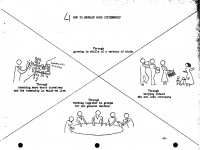There is one question that every foundation and every local government partner asks us about crowdfunding, “What about accountability? How can you guarantee the group will actually do what they say?”

Of course you cannot guarantee anything. Just as in grantmaking or any other capital endeavor, there is risk. At ioby, we have spent a lot of time minimizing that risk, by building structure to ensure projects do what they promise and building policies around what would happen if someone didn’t deliver what they promised. We talk to every project leader on the phone, we review every project, and, if we have concerns about a project, we ask for others to vouch for it before it goes live.
And in 380 cases, no one has ever come close to taking advantage of the system – not once. For some reason, when people post their ideas on ioby, and get them funded online, they actually realize their ideas. And that goes for even the most “out there” ideas.
Read the rest of this blog in Erin’s guest piece “Trust, Accountability, and Your Neighbors” on Philanthrogeek.

